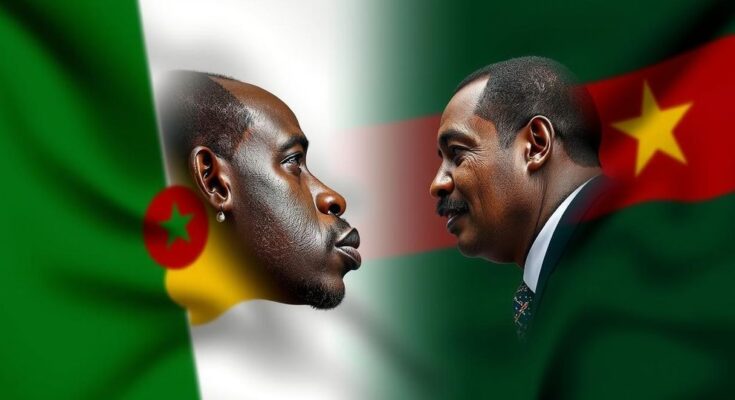Kenya and Uganda will mediate the ongoing dispute between Ethiopia and Somalia, sparked by Ethiopia’s plan to build a port in Somaliland. Somalia’s government has expressed concerns over sovereignty and stability, while past mediation efforts have largely failed. The situation has drawn Somalia closer to Egypt and Eritrea, both of which are adversaries of Ethiopia. President Ruto emphasized the importance of Somali security for regional stability.
On Saturday, Kenyan President William Ruto announced that he and Ugandan President Yoweri Museveni would facilitate mediation efforts between Ethiopia and Somalia, amidst a dispute that poses a risk of destabilizing the wider Horn of Africa region. The conflict stems from Ethiopia’s intentions to construct a port in the self-declared independent region of Somaliland, inciting discontent within the Somali government due to its implications for regional sovereignty and security.
Somaliland, which has asserted its autonomy since 1991, is striving for international recognition and perceives this port deal with Ethiopia as a potential pathway toward achieving that recognition. In response to the growing tensions, Somalia has sought closer ties with Egypt and Eritrea, both of whom have historical grievances against Ethiopia. At a regional summit, President Ruto emphasized the importance of Somali security for the overall stability of the region and its attractiveness to investors.
Despite earlier mediation attempts in Ankara failing to yield results, Somalia’s Foreign Minister Ahmed Moallim Fiqi expressed cautious optimism regarding ongoing initiatives led by Turkey. He noted the previous mediation efforts had been disregarded by Ethiopia, reflecting the complexity of the diplomatic landscape in the Horn of Africa. Meanwhile, Ethiopia’s officials have yet to respond to media inquiries concerning the emerging diplomatic format under Kenya and Uganda.
Additionally, Somali President Hassan Sheikh Mohamud reportedly engaged with Presidents Ruto and Museveni at the summit, although details about specific mediation plans were not disclosed.
The geopolitical dynamics of the Horn of Africa are often influenced by historical grievances and territorial disputes. The ongoing conflict involving Ethiopia and Somalia highlights the sensitive nature of national sovereignty and regional power plays, particularly concerning the long-standing aspiration of Somaliland for independence. Ethiopia maintains a significant military presence in Somalia as part of counter-terrorism measures against al-Qaeda-affiliated groups. The recent tensions have also escalated Somalia’s alliances with regional actors like Egypt, especially over issues related to the Nile River. The role of mediation by regional powers like Kenya and Uganda indicates a proactive approach to conflict resolution in the region.
The mediation efforts led by Kenya and Uganda signify a critical response to the escalating tensions between Ethiopia and Somalia, which could have profound implications for the Horn of Africa’s stability. The involvement of these nations reflects a growing recognition of the interconnectedness of security and economic interests in the region. While optimism persists regarding mediation, past efforts have yielded minimal outcomes, suggesting that sustainable conflict resolution will require persistent diplomatic engagement and collaboration among regional stakeholders.
Original Source: www.hindustantimes.com




